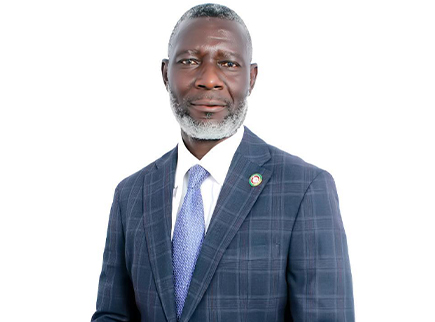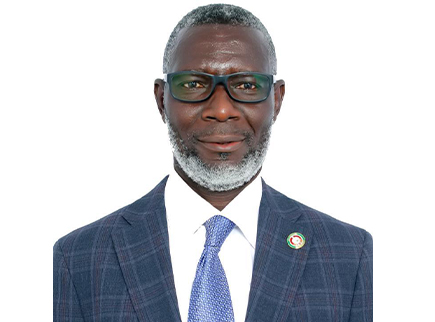A Ghanaian Appeals Court judge, Justice Edward Amoako Asante, who is also the immediate past president of the ECOWAS Court of Justice, has been elected to the prestigious Advisory Committee of the United Nations Human Rights Council, an 18-member think-thank for the Council.
Justice Asante, who will serve for an initial three years; renewable once, was one of the two judges from Africa elected during the 60th session of the Council that ended on Wednesday, 8th October 2025, to fill the seven vacancies in the Advisory Committee following the strong nomination of his country, the Republic of Ghana.
Members of the Committee, who serve in their personal capacities, are nominated by States Members of the United Nations after consultations with national human rights institutions and civil society organizations.
The geographic distribution of the 18 members is as follows – five each from Africa and Asia-Pacific States, three each from Latin American and Caribbean State while the remaining two are from Western European and other States.
In its nomination letter, Ghana described Justice Asante “as a distinguished jurist and seasoned international legal expert whose extensive experience in human rights law, international humanitarian law, and judicial administration makes him an outstanding candidate for this prestigious role.’’
“With over three decades of legal practice and judicial service, including as President and judge of the ECOWAS Court of Justice, Justice Asante has demonstrated deep commitment to the promotion and protection of human rights across West Africa and beyond,” the letter added.

Justice Asante is currently a judge of the ECOWAS Court of Justice where he served as President between August 2018 and October 2024, a tenure that was characterized as “impactful and marked by visionary leadership and judicial innovation’’.
Among the professional achievements cited by Ghana in the letter was Justice Asante’s role in spearheading the development and implementation of an Electronic Case Management System at the ECOWAS Court; presiding over a groundbreaking ruling on civil and political rights, and leading successful external Court sessions which expanded access to regional justice mechanisms.
Other grounds listed for his suitability for the position are his academic and professional credentials, including training in both public and private international law at the Hague Academy of International Law, as well as advanced courses in corporate risk management, judicial ethics, arbitration and governance from leading global institutions.
These qualifications are buttressed by awards recognizing his leadership in justice delivery, including the Columbia University Global Freedom of Expression Award (2020); which was received during his tenure as President on behalf of the ECOWAS Court and the personal African Bar Medal of Merit Award.
Membership of the advisory committee requires a candidate with an understanding of international human rights mechanisms, a proven track record of impartial decision-making, and the diplomatic acumen to transverse intricate terrains.
The letter concluded that Justice Asante’s ‘‘unblemished probity, fidelity to equity, and ample expertise position him as an ideal candidate to render substantive contributions to the endeavours of the Human Rights Council Advisory Committee in its mission to promote human rights.’’
“The Government of Ghana is confident that Justice Asante’s candidacy would continue to enrich the Human Rights Council Advisory Committee’s work with his wealth of experience, balanced jurisprudence, and a firm integrity. His contributions will further strengthen Ghana’s role as a champion of human rights and good governance on the global stage,” it added.

